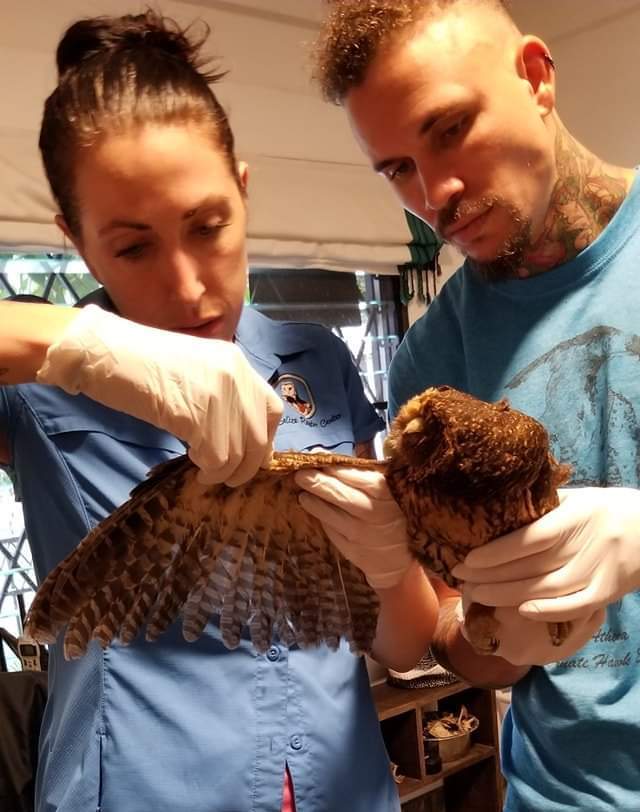Exotics Veterinary Pathology Internship Online
Join a Wildlife Veterinarian LIVE…From anywhere in the world
Work directly alongside a wildlife veterinarian at a Belizean clinic in this veterinary pathology internship. Intern at a state-of-the-art onsite clinic at a center respected locally as a leader in pathological disease assessment, treatment, and research.
This internship is designed for undergraduate students as an introduction to basic veterinary pathology.
Prerequisite: No prerequisite courses are required, but interns should have a basic understanding of mammal anatomy and physiology.
100% live online through Zoom and Google Classroom
Earn 45 veterinary hours for VMCAS vet school applications: 45 live exotics vet hours and 9 open Q&A vet hours with observation and optional breaks
Join a wildlife veterinarian up close in real-time for necropsies and organ dissections
Learn pathological techniques used in veterinary medicine and participate in examinations
Support exotics rescue, rehabilitation, and research in Belize
Interns attending at least 70% of live sessions will receive a certificate of completion (sessions are recorded if you are not able to attend all hours live)

The main objective of the internship is for you to understand and learn the pathological changes that occur in tissues and organ systems and how such changes provide the basis for clinically-manifested diseases. You will have opportunities to apply concepts you have learned in cellular biology and anatomy and physiology, but these are not pre-requisite courses for the internship. You will understand and learn the occurrence, development, and progression of pathological changes in body systems and individual organs, and relate their morphology at gross (macroscopic) and microscopic levels to clinically recognizable functional defects and disease states.
Instead of a lecture-based course, this virtual internship uses Zoom and Google Classroom to bring you into the clinic and learn as the teaching veterinarian guides you through the diagnostic processes used in the clinic. The focus is on understanding the principles and patterns of pathology by seeing them in real-time. You will be exposed to practical examples of disease processes. This internship provides a foundation in pathophysiology and a link between biology concepts and their clinical applications.
If you are interested in pathology but the terminology above sounds intimidating, don’t be scared! This internship is designed for undergraduate-level students as a basic introduction to veterinary pathology. Learning in an internship is different from learning in a traditional classroom. You will learn by watching the veterinarian explain and apply concepts directly to actions taken in the clinic each day.
Your tuition supports the avian rescue clinic in rural Belize where the program takes place and ensures that your teaching vet can focus internship hours on demonstrating, teaching, and explaining the pathology of exotics in ways that will be interactive, memorable, and applicable to your future veterinary education and career.





The course also includes an intern project (approximate time commitment outside of session: 2 hours) designing an informational brochure on a common animal illness that will be used to improve animal health in the community around your host organization.
Note: all necropsy and dissection specimens are performed on naturally deceased animals, feed animals, or animal parts disposed of from food animals. No animals will be raised for or euthanized for necropsy.
Program Dates:
Session |
Dates |
Enrollment Deadline |
Summer 2023 |
Tue, June 13 to Sat, July 1, 2023 | Sat, June 10, 2023 |
What will a Zoom session look like? Here’s an example internship day!
Since many students have had difficulty finding shadowing or volunteer experiences due to COVID-19, we are heavily discounting tuition to help students meet their goals.
Session |
Full Tuition |
Summer 2023 Tuition |
Summer 2023 |
$1495 |
University credit is not offered with this internship.
There are no additional readings, technology subscriptions, or course materials you have to purchase to participate in this internship. Extensive resources on raptor rehabilitation, which students can keep, are included with the internship tuition.
Jorge Luis Mercado, DVM
Your internship involves live meeting hours working with an exotics veterinarian in Belize. Some vet schools classify these as “veterinary hours” while others might have you classify them as another type of experience. To decide how to record these hours in your VMCAS application, please check with the vet schools to which you are applying.